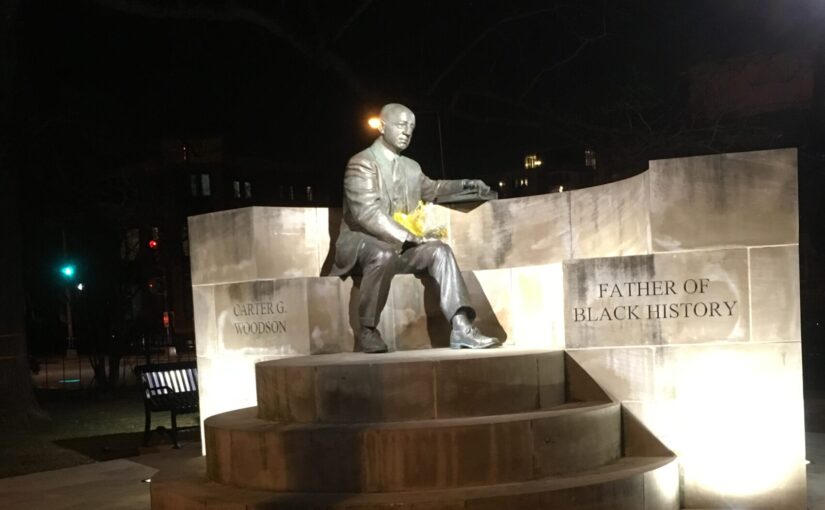It’s Black History Month, so I am continuing with reprint of the series of posts regarding Shaw resident and Father of Black History, Carter G. Woodson and his book The Mis-Education of the Negro, published in 1933.
On occasion I will look for study aids to add to these posts. I look at what others have written and wonder if we were reading the same book. The organization Dr. Carter G. Woodson founded, ASALH’s aid skips Chapter 11 in the table of contents. There are two points many aids point to in this chapter and they are:
-
- Checking up on what they do, Negroes often find themselves giving money and moral support to various persons and institutions which influence the course of the race in the wrong way.
- If the Negro could abandon the idea of leadership and instead stimulate a larger number of the race to take up definite tasks and sacrifice their time and energy in doing these things efficiently the race might accomplish something. The race needs workers, not leaders. Such workers will solve the problems which race leaders talk about and raise money to enable them to talk more and more about.
I bolded the point but thought it was meaningless without Woodson’s surrounding words.
As I wrote, I feel like I’m not reading the book the way others are, and coming away with a different message. If I were to summarize this chapter it would be, ‘get the Old Bay we got crabs in a barrel‘.
The problem that existed in the 1930s, exists still. There is no real unity. There is lots of infighting.
In one city of a few thousand Negroes there is no chance for community cooperation because of the antagonism of the Methodist and Baptist preachers in charge of the two largest churches. The one is determined to dictate the appointment of the teaching corps and the social welfare workers; the other is persistently struggling to undo everything accomplished by his opponent. The one is up today, and the other in ascendancy tomorrow. Several efforts have been made to start business enterprises there, but none has succeeded because one faction tears down what the other builds up.
There’s a book I have yet to finish about African Americans in Chicago and real estate injustice. Part of the book covers Dr. Martin Luther King, Jr.’s efforts to improve housing and there was another African American pastor in the area that seemed to try to thwart King’s efforts. King was intruding on the other man’s territory.
The problem wasn’t limited to the clergy:
In another state the ambition of the highly educated Negro is restricted to becoming principals of the high schools. The neglected state school has not developed sufficiently to become attractive. The warring area, then, is in the cities. In one of them, where several Negroes own considerable wealth which, if pooled and properly used, would produce all but wonderful results, the petty strife has been most disastrous. Little thought is given to social uplift, and economic effort is crushed by factional wrangling. Before the author had been in one of the towns an hour a stalwart of one faction sounded him on becoming a candidate for the position held by the principal of the high school. A few minutes thereafter another approached him for advice as to how “to get him out.”
Take a drink if you caught the snipe at the ‘highly educated’ African Americans. It’s a constant theme. Continue reading Carter G. Woodson- Mis-Education of the Negro- Chapter 11: The Need for Service Rather than Leadership

